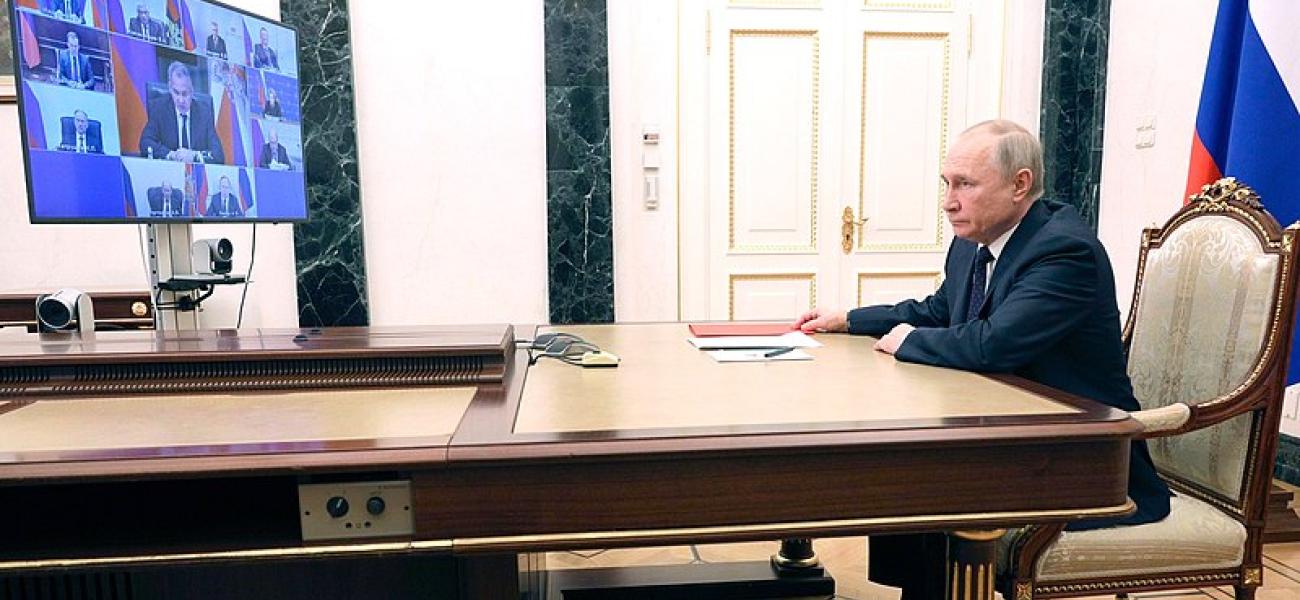
Putin’s Rationality and Escalation in Russia’s Invasion of Ukraine
This is a summary of an article originally published by PONARS Eurasia.
The author, a professor of political science at Barnard College, Columbia University, argues that in order to understand "whether Putin is likely to attack a North Atlantic Treaty Organization (NATO) member-state or use nuclear weapons, it is helpful to consider a standard social science definition of rationality… What many of these social science definitions have in common are three basic tenets: (1) a rational actor has a set of goals and acts on them; (2) the actor’s goals are more or less consistently prioritized over time; and (3) the actor does a fairly complete search for information before taking action.”
According to the author, Putin's "well-prioritized" goals with regard to Ukraine failed to materialize for several reasons. First, "Putin seems to have had astonishingly poor intelligence in the lead-up to his decision to invade Ukraine"; second, "Putin did not understand how strong the Ukrainian resistance would be, nor that his own forces were under-motivated with inadequate logistic support"; and third, "Putin also seems to have seriously underestimated the unity of global economic actors, led by the United States, in condemning his actions and imposing extraordinarily harsh sanctions on Russia.” In light of these miscalculations, as well as the fact that "Ukraine has accomplished so much up until now with Western support," the author argues that it is "a miscalculation, not madness, that the United States and NATO must guard against.”
Kimberly Marten
Kimberly Marten is a professor of political science at Barnard College, Columbia University.
The opinions expressed herein are solely those of the author. Photo by Kremlin.ru shared under a Creative Commons license.
